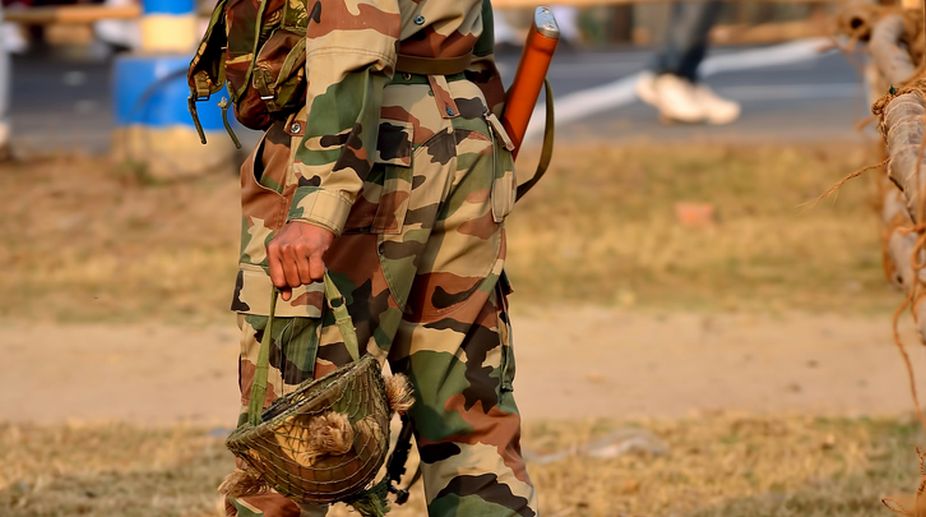DG CRPF calls on Assam CM
Director General of Central Reserve Police Force (CRPF), GP Singh, called on Assam Chief Minister Himanta Biswa Sarma at the latter's official residence here on Friday.

Representational Image (Getty Images)
Conflicting are the reports giving “reasons” why a jawan of the Central Reserve Police Force shot dead his immediate superior and three others at the Basaguda camp in Chattisgarh last week. What is clear is the need for a comprehensive probe into what provoked constable Santh Kumar into such terrible action, for it points to an evaporation of the trust and confidence that sustains the chain of command through thick and thin. Kumar’s family claims he “lost it” when denied leave to visit an ailing mother: his two brothers in the Army had received more considerate treatment from their officers. The CRPF maintains that the constable had discipline problems, and nursed a grudge against the platoon commander who had lodged a complaint against him.
Both “theories” are plausible, difficulties in being granted leave is a sore point in the paramilitary where men have to undertake long tenures in difficult conditions with only limited creature comforts. Yet if the man, as alleged, “made off” to villages near the camp in search of alcohol the need to penalise him cannot be ignored. Yet what raises eyebrows is the “punishment” ~ he was redeployed as a dog-handler, which is not regarded as an important job. Worse, it is unfair to the presumably trained-dogs who require handling by people who love and appreciate them so that a “twosome” is forged. It is a poor reflection on the force if dog-handling is deemed a “punishment posting”. For one outcome could be the dog squad not “delivering”, and detecting and tracking insurgents through the jungle ~ or patrolling the perimeter of police camps or installations ~ is no trivial task.
Advertisement
The leadership in the paramilitary often falls short of the desired standards. Since at the highest level the officers move from one agency to another, the bonding between officers and their subordinates is not as strong as it is in the Army, for example. That has a trickle-down effect, the jawans often lack the desired levels of “assurance” in their immediate superiors.
Advertisement
That confidence-deficit gets exacerbated because of the tough and varied duties the CRPF is called upon to perform ~ men who tackle insurgency are often drafted to undertake law and order jobs during elections, mass gatherings during religious festivals and so on. Although there has been substantial improvement in the weapons, transport and communications systems with which the paramilitary is now equipped, there has been no corresponding upgrade in its human resources, particularly at the intermediate level. This is an area that requires urgent attention. It must be perceived as a matter of shame when jawans go “berserk” and turn a gun on their colleagues. The CRPF is playing a key role in the maintenance of internal security, it must be given as much attention as the Army by political masters.
Advertisement